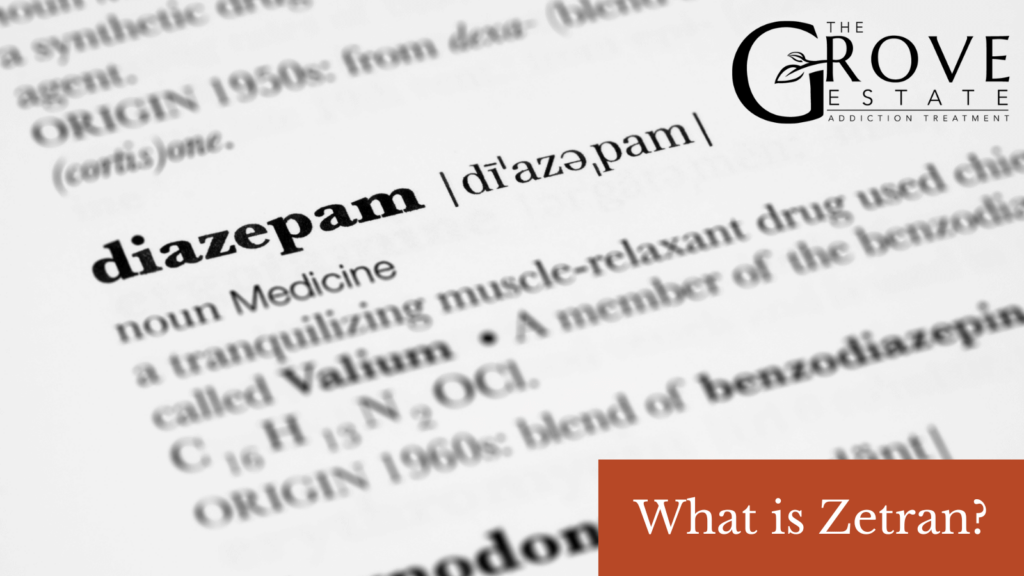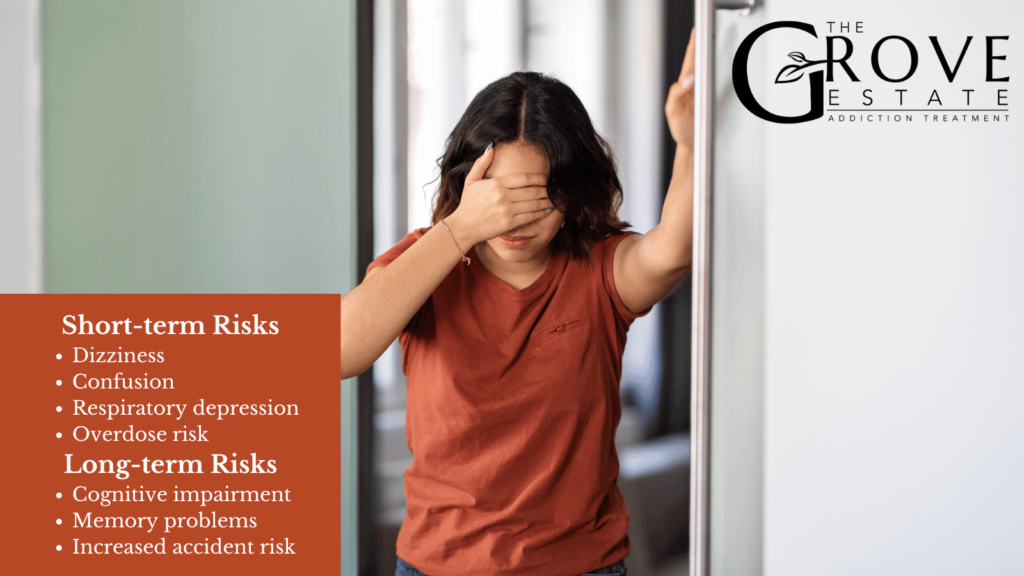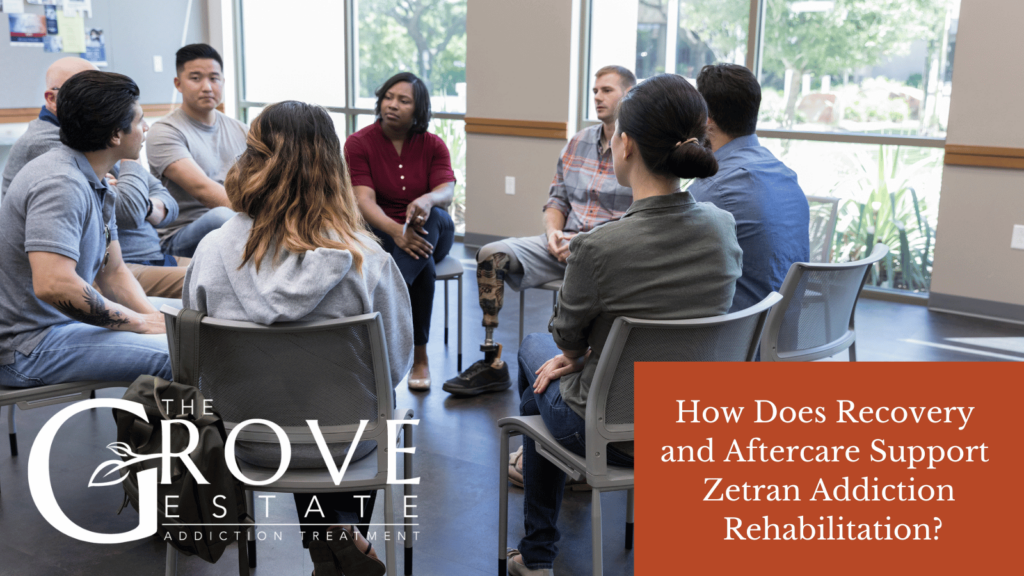Zetran, known generically as diazepam, is a medication primarily used for treating anxiety disorders, muscle spasms, and seizures, including status epilepticus, a severe form of seizure requiring emergency medical care. It is also used as a sedative before surgeries or medical procedures.
Despite its medical benefits, Zetran has a potential for misuse and dependence, particularly because of its calming effects. The misuse of Zetran, especially when combined with substances like alcohol or opioids, significantly increases the risk of life-threatening complications such as respiratory depression and profound sedation. According to a study published in 2021 by the National Institute on Drug Abuse, nearly 14% of overdose deaths involving opioids also included benzodiazepines, which are commonly prescribed for anxiety including drugs like Diazepam (Zetran).
Treatment for Zetran addiction requires a multi-faceted approach, involving medical detox to manage withdrawal symptoms safely under professional supervision. Long-term recovery strategies include behavioral therapies such as Cognitive Behavioral Therapy (CBT) to address the psychological aspects of addiction. Additionally, support groups and possibly medications are used to manage cravings and co-occurring mental health conditions, providing a comprehensive support system to prevent relapse and promote sustained recovery.

What is Zetran?
Zetran, known by its generic name diazepam, was FDA-approved as an anti-anxiety medication, anticonvulsant, antispasmodic, and treatment for alcohol withdrawal syndrome. Although the brand name Zetran has been discontinued, diazepam is still available in various forms such as oral tablets, liquid, rectal gel, and injections.
As a benzodiazepine, diazepam works by calming brain activity. It is prescribed for short-term use because prolonged use leads to physical dependence, and its safety and efficacy beyond four months have not been extensively studied.
What is the Addiction Potential of Zetran?
Zetran possesses significant addictive potential, particularly due to its calming effect on the brain’s neurotransmitter activity. This class of drugs enhances the effect of the neurotransmitter GABA, which contributes to its sedative properties. Dependence and addiction to Zetran can develop quickly, especially with prolonged use or misuse. The risk of addiction increases when the drug is used in higher doses than prescribed, used without a prescription, or used for longer periods than intended by a healthcare provider.
What are the Signs and Symptoms of Zetran Misuse?
Indications of diazepam misuse include exceeding the prescribed dose, taking it more frequently than directed, or using the medication without a valid prescription. Signs of addiction manifest as:
- Engaging in compulsive behaviors to obtain more diazepam
- Constantly fixating on acquiring the next dose of the drug
- Persisting in its use despite experiencing adverse consequences
- Resorting to dishonesty, theft, or forgery to access diazepam
- Illegally purchasing diazepam or other benzodiazepines
- Visiting multiple doctors to obtain additional prescriptions
- Pilfering medications from acquaintances or family members
Regarding Zetran overdose, while overdosing solely on diazepam is feasible, it’s also common for overdoses to occur when benzodiazepines are combined with other substances. Symptoms of benzodiazepine overdose mimic the effects of alcohol intoxication.

What are the Risks Associated with Zetran Addiction?
There are many risks with Zetran addiction including short- term risks, long-term risks and drug interactions with other substances, especially alcohol. Here is a list of those risks:
Short-term Risks
- Dizziness
- Confusion
- Respiratory depression
- Overdose risk
Long-term Risks
- Cognitive impairment
- Memory problems
- Increased accident risk due to impaired coordination
Dangers of Combining Zetran with Other Substances, Particularly Alcohol:
- Extreme sedation
- Respiratory suppression
- Heightened risk of overdose
- Exacerbation of psychological effects like depression, anxiety, and confusion
What to Expect from Withdrawals from Zetran?
Zetran withdrawal is a challenging process due to the drug’s impact on the central nervous system. Symptoms of withdrawal will vary in severity and duration depending on factors such as the dosage, duration of use, and individual physiology. Common withdrawal symptoms from Zetran include:
- Anxiety
- Insomnia
- Tremors
- Sweating
- Nausea and vomiting
- Muscle spasms
- Headaches
- Irritability
- Confusion
The severity of these symptoms range from mild discomfort to more severe complications such as seizures or rebound anxiety. Due to the potential for serious withdrawal effects, medical supervision during the withdrawal process is essential for safety and comfort. Healthcare professionals provide support, monitor vital signs, and administer medications if necessary to manage withdrawal symptoms effectively.

What are 6 Treatment Options for Zetran Addiction?
Treating Zetran addiction, like other substance use disorders, involves a multifaceted approach focusing on both physical detoxification and psychological rehabilitation. Here’s an overview of the typical treatment methodologies available for those struggling with Zetran addiction:
1. Detoxification
Detoxification is the first step in treating Zetran addiction, aimed at safely managing withdrawal symptoms as the drug leaves the body. This process should be supervised by medical professionals in a controlled environment, such as a detox center or hospital, to ensure the safety and comfort of the individual. Medications may be used to alleviate withdrawal symptoms and prevent complications.
2. Rehabilitation Programs
After detox, individuals usually enter a rehabilitation program that can be either inpatient (residential) or outpatient. Inpatient programs are intensive and require individuals to stay at a treatment facility for a duration—typically ranging from 30 to 90 days—where they receive 24-hour care. Outpatient programs allow individuals to live at home while attending therapy sessions multiple times a week at a treatment center.
3. Therapy
Therapy is a cornerstone of addiction treatment and works by addressing the psychological and behavioral aspects of addiction. It includes:
- Individual Therapy: One-on-one sessions with a therapist help individuals understand the root causes of their addiction, develop coping strategies, and learn how to deal with cravings and avoid relapse.
- Group Therapy: Facilitated by a therapist, group sessions allow individuals to share experiences, challenges, and successes with peers, fostering a sense of community and mutual support.
- Cognitive-Behavioral Therapy (CBT): This type of therapy helps individuals identify and change negative thought patterns and behaviors that contribute to their addiction.
- Family Therapy: Involves family members in the treatment process to improve communication and resolve conflicts within the family that may contribute to the addiction.
4. Support Groups
Participation in support groups like Narcotics Anonymous (NA) or other community support groups provide ongoing encouragement and a network of peers who understand the challenges of living without Zetran. These groups often use a 12-step approach, which helps individuals build a framework for sobriety.
5. Aftercare and Relapse Prevention
After completing a rehab program, aftercare planning is essential. This includes ongoing therapy, support groups, and sometimes sober living environments. The goal is to maintain sobriety and prevent relapse, which is a common part of the recovery journey.
6. Medication-Assisted Treatment (MAT)
Although more common in other types of addiction (like opioids), MAT is sometimes used in managing cravings and mental health issues associated with Zetran addiction, depending on the individual’s needs and the specifics of their situation.
How to Choose a Zetran Rehab Center?
When selecting a Zetran rehab center, it’s crucial to consider several factors to ensure effective treatment for benzodiazepine addiction, including Zetran specifically. Look for a facility that specializes in benzodiazepine addiction treatment and has experience dealing with the complexities of Zetran misuse. Evaluate the programs and therapies offered to ensure they align with your needs, including detoxification, behavioral therapies, and ongoing support.
Consider whether inpatient or outpatient treatment is more suitable based on your individual circumstances. Inpatient treatment provides 24-hour care in a residential setting, offering intensive support and monitoring during detox and recovery. On the other hand, outpatient treatment allows you to live at home while attending therapy sessions, providing more flexibility but requiring a higher level of personal accountability. Ultimately, the choice of a Zetran rehab center should prioritize comprehensive care, personalized treatment plans, and a supportive environment conducive to long-term recovery.

How Does Recovery and Aftercare Support Zetran Addiction Rehabilitation?
Recovery and aftercare play crucial roles in supporting individuals recovering from Zetran addiction. Ongoing support helps individuals navigate the challenges of withdrawal, manage cravings, and develop coping strategies for triggers that may lead to relapse. Aftercare programs often include counseling, therapy sessions, and participation in support groups, all of which contribute to maintaining sobriety and promoting long-term recovery.
What Steps Are Taken to Prevent Zetran Misuse and Addiction?
- Educate yourself about the potential risks associated with benzodiazepines like Zetran.
- Be Informed: patients should know about the importance of:
- Following prescribed dosage instructions.
- Understanding the potential dangers of combining Zetran with other substances, especially alcohol.
- Healthcare providers should:
- Practice safe prescribing practices.
- Conduct thorough patient assessments before prescribing Zetran.
- Monitor patients closely for signs of misuse or addiction.
- Start Alternative Therapies for anxiety and sleep disorders when appropriate to:
- Help reduce reliance on Zetran.
- Lower the risk of addiction.
How does Zetran interact with other medications?
Zetran can interact with several other medications, potentially causing increased sedation or respiratory depression. It’s particularly important to avoid combining Zetran with alcohol, opioids, and other central nervous system depressants. Always consult with a healthcare provider about all medications and supplements you are taking before starting Zetran.
Can Zetran be used during pregnancy?
Zetran is classified as a Category D medication for pregnancy, which means there is positive evidence of human fetal risk, but the benefits from use in pregnant women may be acceptable despite the risk. Use during pregnancy, especially in the first trimester, is generally avoided unless specifically prescribed by a healthcare provider.
What should I do if I miss a dose of Zetran?
If you miss a dose of Zetran and it’s close to the time of your next dose, skip the missed dose and continue with your regular dosing schedule. Do not double up on doses to make up for a missed one. It’s important to follow the dosing instructions provided by your healthcare provider.
What are the neurobiological changes associated with chronic Zetran abuse?
Chronic Zetran abuse alters the brain’s GABA system, leading to reduced natural GABA production and altered receptor sensitivity. This causes dependence, tolerance, and withdrawal symptoms upon cessation. Long-term effects include impaired memory, judgment, and coordination due to these neurobiological changes.
What are the early signs of Zetran addiction?
Early signs of Zetran addiction can be subtle and vary from person to person. Initially, individuals may increase their dosage beyond the prescribed amount to achieve the same effects, a behavior known as tolerance. Other early signs include preoccupation with obtaining and using the drug, as well as neglecting responsibilities at work, school, or home in favor of drug use.
Recognizing these signs early is crucial for addressing prescription drug addiction. Early intervention can prevent the progression of addiction and reduce the risk of severe consequences, making it important to seek help as soon as these signs are noticed.
How does Zetran addiction impact mental health?
Zetran addiction can have profound effects on mental health, leading to increased anxiety, depression, and in severe cases, psychosis. The sedative effects of Zetran, while initially calming, can exacerbate underlying mental health issues or contribute to new ones, particularly with long-term use.
Treatment for these mental health effects typically includes drug & alcohol seminars that educate individuals on the impact of substances on mental health and coping strategies to manage symptoms. These seminars can provide valuable support, offering guidance on navigating the complexities of addiction and mental health in a holistic way.

Share This Post



